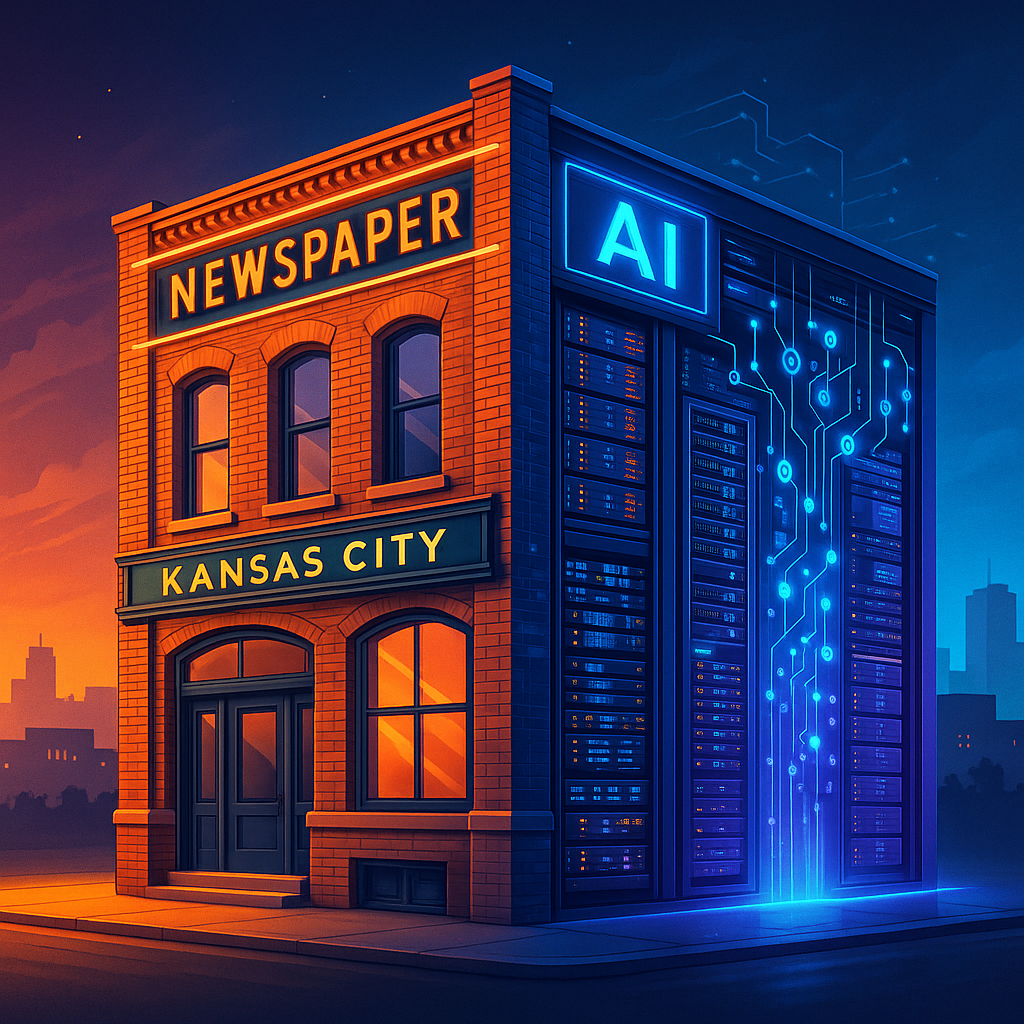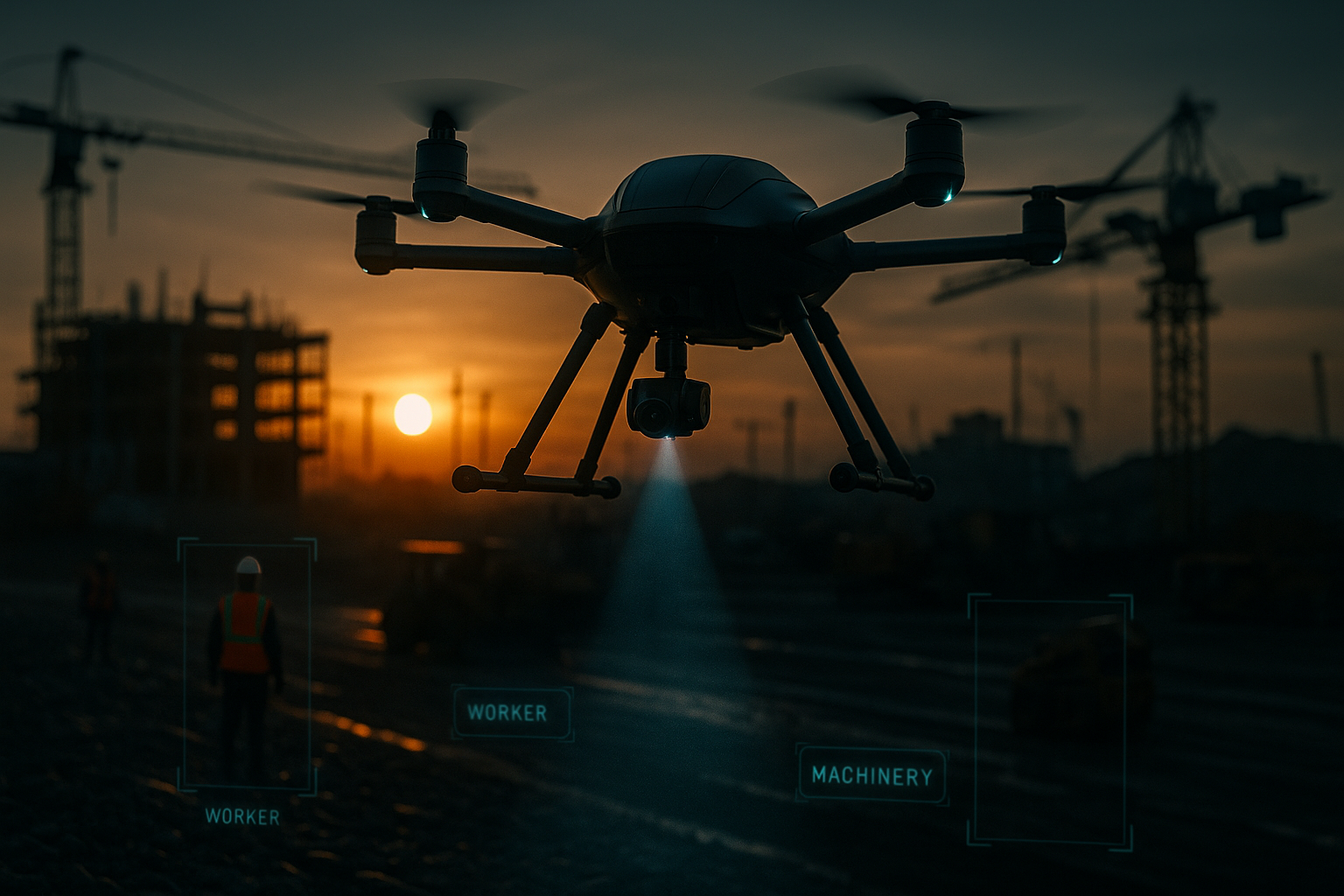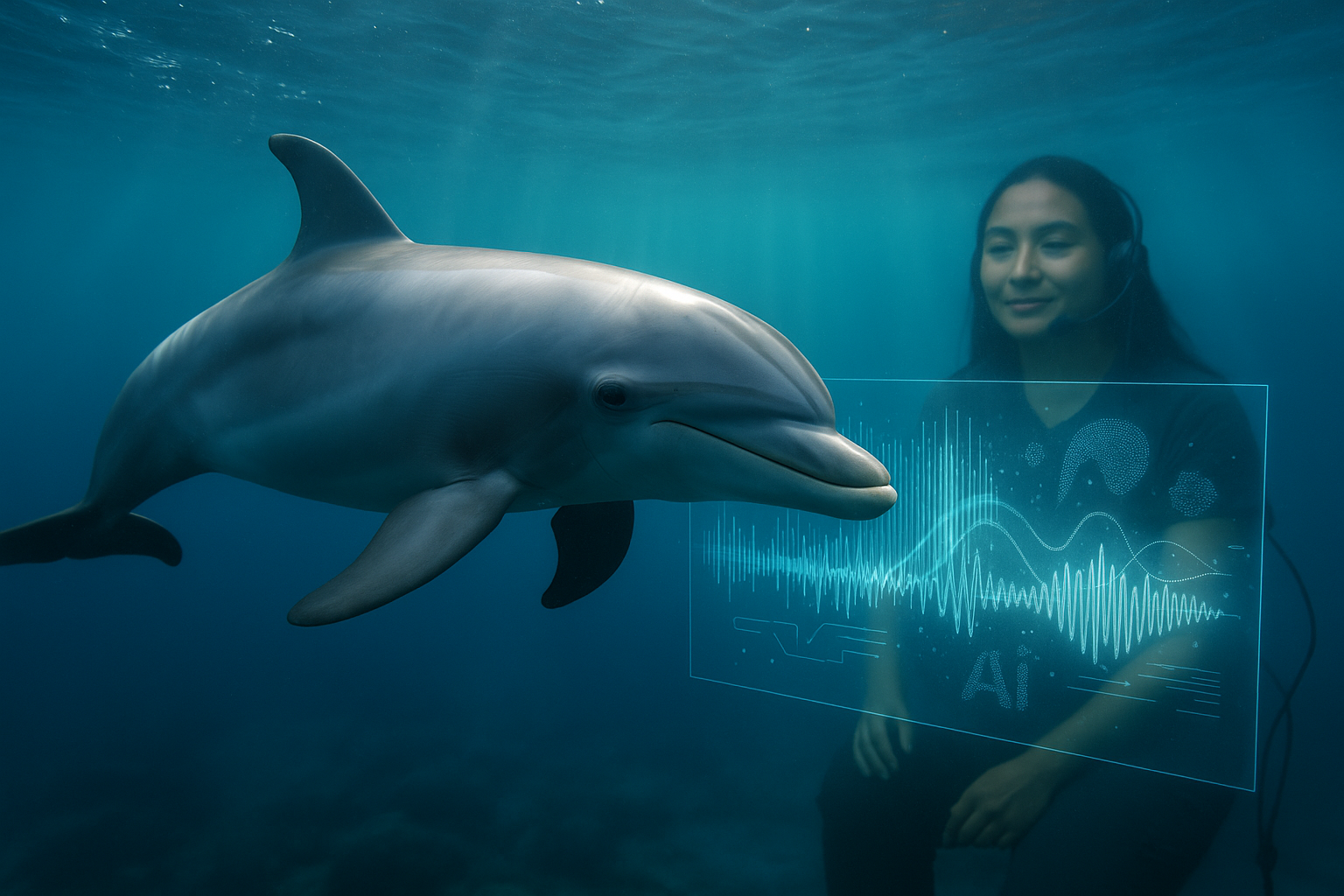
How Kansas City’s Historic Newspaper Building Is Becoming an AI Powerhouse
Kansas City’s architectural icon is getting a new lease on life—with AI at its core.
The former Kansas City Star building, once home to rolling presses and breaking headlines, is now being reimagined as a 100 MW “AI factory.” The project blends preservation with innovation, offering a compelling symbol of how legacy infrastructure can be reborn for the next wave of computing.
This isn’t just a data center—it’s a signal of the region’s emerging role in the AI economy.
The Vision: An AI Factory in the Heart of the City
The project, led by Kansas City-based developer Patmos, is transforming the historic 400,000-square-foot structure at 1601 McGee Street into a high-performance data center optimized for artificial intelligence workloads. The plan includes over 100 megawatts of computing power—an enormous capacity typically reserved for hyperscale AI operations.
The term “AI factory” isn’t just a buzzword. It refers to purpose-built environments that support large-scale training, inference, and data management for machine learning systems. These facilities require dense server clusters, specialized cooling, low-latency networking, and stable, scalable power.
A $1 Billion Investment in Innovation
Patmos is investing $1 billion in retrofitting the building—one of the city’s most recognizable structures. The redevelopment is not only about infrastructure but also about community and economic development. Plans call for a hybrid space that includes:
- GPU-ready data center modules
- Collaborative workspaces for tech startups
- Public exhibits honoring the building’s legacy
- Flexible amenities for creators, investors, and founders to connect
It’s an ecosystem designed to attract both global AI companies and local innovation.
First Tenant: Nebius Launches Its U.S. GPU Cluster
The first official tenant will be Nebius, an Amsterdam-based AI infrastructure company. They plan to establish their first U.S.-based GPU cluster in the building, signaling confidence in the site’s potential.
The phased rollout will start with 5 MW of power coming online in the near term, with a larger 40 MW stage expected within 18 months. This pace reflects both the urgency and opportunity behind the AI wave.
Zoning Cleared, Momentum Building
In February 2025, the Kansas City Plan Commission approved key amendments to the building’s zoning. This allows for new use categories including communications infrastructure, entertainment, small-scale manufacturing, and flexible storage.
This zoning win paved the way for construction and confirmed broad civic support for repurposing the site as a mixed-use technology hub.
Why It Matters
This project reflects a powerful trend: the reuse of legacy real estate assets for cutting-edge digital infrastructure. From architecture and engineering to utilities and economic policy, AI is influencing how we design and activate space.
At Spark AI Strategy, we’re watching these developments closely because they represent the real-world application of AI across industries—not just in theory, but in the physical footprint of our cities. This is where AI meets architecture, design meets data, and history meets the future.
If you’re in commercial real estate or the AEC industry and curious about how AI might fit into your strategy, this is a case worth watching—and learning from.
Bibliography
- Kansas City Business Journal: https://www.bizjournals.com/kansascity/news/2024/02/09/kc-star-redevelopment-patmos-nebius-ai-factory.html
- KSHB 41 Kansas City: https://www.kshb.com/news/local-news/developer-looks-to-bring-ai-factory-to-former-kansas-city-star-building
- REBusinessOnline: https://www.rebusinessonline.com/patmos-to-invest-1b-in-redevelopment-of-kansas-city-star-building/
- Patmos: https://patmos.tech/patmos-to-convert-the-iconic-kansas-city-star-building-into-a-state-of-the-art-100-mw-data-center/
- Nebius: https://group.nebius.com/newsroom/nebius-expands-in-us-with-first-gpu-cluster-in-kansas-city-offices-in-san-francisco-dallas-and-new-york
- Axios Kansas City: https://www.axios.com/local/kansas-city/2025/06/10/ai-data-center-kc-star-building-future




